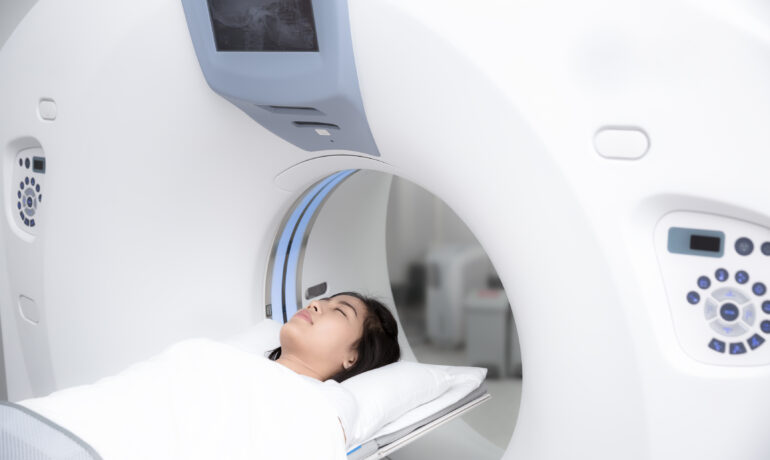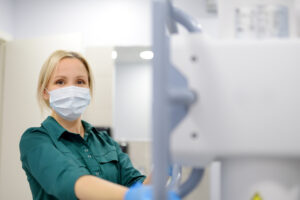Diagnostic imaging accreditation (DIAS) is a process through which medical practices can demonstrate that practices meet or exceed specific standards of quality and safety when providing diagnostic imaging services. Accreditation is increasingly becoming a requirement for medical practices in Australia, particularly those that want to access Medicare rebates. While accreditation offers many benefits, achieving and maintaining it can be a challenging task for medical practices. Here, we will explore some of the common challenges around this process as well as how to solve them.
1. Understanding the complexaccreditation process
One of the most significant challenges faced by medical practices is understanding the DIAS accreditation process. It’s a complex process and it’s difficult and time-consuming to fully understand the requirements for accreditation, the standards that must be met, and the assessment process itself. This complexity can make it difficult for practices to adequately prepare for accreditation assessments and achieve accreditation.
To overcome this challenge, medical practices must take the time to fully understand the accreditation process. It is exceptionally helpful to have resources and guidance from professional accreditation providers and industry associations to ensure you are fully prepared for the assessment process.
2. Meeting the standards
Accreditation standards are designed to ensure safe, effective, and high-quality diagnostic imaging services. However, meeting these standards can be a significant challenge for many practices, particularly those with limited resources or expertise in DIAS certification processes.
To meet the standards required for accreditation, you will need to have appropriate processes, procedures, and equipment in place. You must also ensure that staff has the necessary training and qualifications to provide safe and effective diagnostic imaging services. This can be achieved through ongoing education and training programs, as well as regular reviews and assessments of the practice’s processes and procedures.
3. Maintaining accreditation
Once a medical practice has achieved accreditation, the next challenge is maintaining it, as DIAS standard are subject to change. Accreditation requires ongoing commitment and effort from the practice to ensure that practices continue to meet or exceed the required standards. This can be particularly challenging for practices that are already stretched for time and resources, especially since patient care is a primary focus for where you spend your time and effort.
To maintain accreditation, it’s important to have a system in place to monitor and review processes and procedures regularly. Practices must also stay up to date with the latest advancements and best practices in diagnostic imaging and make the necessary changes to processes and procedures as required by DIAS. This requires ongoing education and training programs for staff and regular assessments and reviews of the practice’s performance.
4. Managing the costs
Accreditation can be a costly process for medical practices. There are various costs associated with accreditation, including the cost of assessments, training, and ongoing monitoring and maintenance of the practice’s processes and procedures. For smaller practices or those with limited resources, these costs can be particularly challenging to manage.
To manage the costs of accreditation, medical practices must carefully plan and budget for the process, as well as find a provider who offers quality services at an affordable rate, including custom packages.Practices must also consider the long-term benefits of accreditation, such as improved patient outcomes and reduced risk and liability, when assessing the costs.
5. Engaging staff
Accreditation requires a team effort, and it can be challenging to ensure that all staff members are fully engaged and committed to the process.
To engage staff in the accreditation process, it is essential to communicate the importance of accreditation and the benefits it offers to staff members. Staff must be involved in the process, have access to opportunities for education and training, and have access to channelsto supply feedback and input on the practice’s processes and procedures.
6. Finding the right DIAS accreditation support provider
Although this is a complex process, with the right support and expertise, practices can successfully navigate the accreditation process and provide safe, effective, and high-quality diagnostic imaging services to their patients.
The right provider can help you understand the accreditation process, develop processes and procedures that meet accreditation standards, prepare for assessments, and maintain accreditation on your behalf. As a result, this provides a significant amount of help for practices, allowing you to spend your time and resources on patient care rather than paperwork.
Finding the right professional support provider is critical to this process, and medical practices must take the time to carefully research and evaluate different providers to ensure that practices select the provider best suited to their needs.
It’s essential to find providers with experience and expertise in the specific accreditation standards and requirements relevant to DIAS. Just as importantly, you should look at the provider’s track record of success, whether they provide custom packages, as well as their approach to working with clients and their overall level of support.
Work with Excelsior Accreditation – Solve every DIAS accreditation challenge today
By working with a trusted and experienced provider like Excelsior Accreditation, you can overcome every challenge of accreditation simply and affordably.
Our specialists can assist you with gaining and maintaining diagnostic imaging accreditation through our professional support services. We will liaise with your team to get the necessary information the process requires and take the administrative burden off your shoulders. We will format your policies and procedures and create relevant, user-friendly policies for all areas of your practice. Additionally, we can manage all aspects of your practice’s compliance for years to come to ensure your practice stays competitive, compliant, and world-class.






